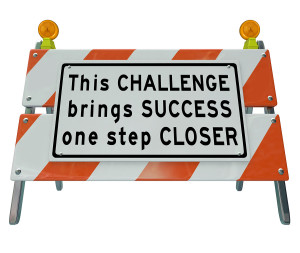 I went to visit some friends who work at AT&T at the very building where I started my career with the company, back when they were known as Ameritech. 10 days earlier some of my former colleagues celebrated their 20 year anniversary with the company.
I went to visit some friends who work at AT&T at the very building where I started my career with the company, back when they were known as Ameritech. 10 days earlier some of my former colleagues celebrated their 20 year anniversary with the company.
Here’s to the 20 Year Anniversary I Didn’t Celebrate
7 Steps to Become a Learning Machine
 In my last post I wrote about finding the motivation to learn something new. Once you have the motivation, how do you do actually go about learning?
In my last post I wrote about finding the motivation to learn something new. Once you have the motivation, how do you do actually go about learning?The Difference Between Pros and Amateurs
 I play golf maybe once a week. My goal is to break 90, but I’m struggling to accomplish that. At times I’m getting closer, others it’s far off. I also have to take into account that the golf season in Wisconsin is six months long. By the time spring rolls around, I’m rusty and it takes months to get my swing back.
I play golf maybe once a week. My goal is to break 90, but I’m struggling to accomplish that. At times I’m getting closer, others it’s far off. I also have to take into account that the golf season in Wisconsin is six months long. By the time spring rolls around, I’m rusty and it takes months to get my swing back.
How to Keep Your Self-Talk Positive
 Science has shown that we have anywhere from 30,000 to 70,000 thoughts a day, which means we are bombarded with self-talk every minute we’re awake. How do we allow ourselves to remain positive when there’s so much coming at us?
Science has shown that we have anywhere from 30,000 to 70,000 thoughts a day, which means we are bombarded with self-talk every minute we’re awake. How do we allow ourselves to remain positive when there’s so much coming at us?
How to Build Momentum
 I’ve been networking with at least one person for eight out of the last 11 days since my job was eliminated. It’s been good to connect with people who have offered their advice, support, and friendship. I’ve come back after each meeting with a burst of energy which carries me into the next day.
I’ve been networking with at least one person for eight out of the last 11 days since my job was eliminated. It’s been good to connect with people who have offered their advice, support, and friendship. I’ve come back after each meeting with a burst of energy which carries me into the next day.Five Lessons I Learned When My Job Was Eliminated
 Last Thursday was like any other; I got up, went to work, and started my day. Mid-morning, my boss asked to see me. I walked into his office and when I turned the corner I noticed our HR Manager was there and my eyes got wide. I took a seat and was told that because of the way the business was going and job consolidation, he had eliminated my job. HR walked me through some paperwork, I packed my belongings, and was escorted out the door. I got in my car and drove home. I was in shock.
Last Thursday was like any other; I got up, went to work, and started my day. Mid-morning, my boss asked to see me. I walked into his office and when I turned the corner I noticed our HR Manager was there and my eyes got wide. I took a seat and was told that because of the way the business was going and job consolidation, he had eliminated my job. HR walked me through some paperwork, I packed my belongings, and was escorted out the door. I got in my car and drove home. I was in shock.
Starting from Scratch
 This past weekend I went golfing with my good friend Andy. Before hitting the course we hit the driving range. He wanted to work on my iron shots and chipping, which have been all over the place lately. So, we did what needed to be done, we started from scratch. He showed me how to swing my irons as if I’ve never golfed before. He had me start with the basics.
This past weekend I went golfing with my good friend Andy. Before hitting the course we hit the driving range. He wanted to work on my iron shots and chipping, which have been all over the place lately. So, we did what needed to be done, we started from scratch. He showed me how to swing my irons as if I’ve never golfed before. He had me start with the basics.
The Freedom to Experiment
 We’re told early on in life that we need to stay in the lines, don’t be sloppy, be neat. We can’t do things differently than others; that we need to blend in. But, if we aren’t given the chance to experiment, we’ll never know what we are capable of achieving. How do you learn to take leaps into the unknown when so much emphasis today is placed on being perfect?
We’re told early on in life that we need to stay in the lines, don’t be sloppy, be neat. We can’t do things differently than others; that we need to blend in. But, if we aren’t given the chance to experiment, we’ll never know what we are capable of achieving. How do you learn to take leaps into the unknown when so much emphasis today is placed on being perfect?
The World Doesn’t Owe You Anything
 I went through a phase in my life where I was frustrated by my lack of success. I thought, “When I’m discovered, then things will be different.” When I learned the truth that the world is never going to discover me. It made it easier to deal with. I was waiting for the world to hand me something just because I wanted it. Even if I hadn’t really earned it. (There’s also another lesson in there about how you define success, but I’ll save that for another time.)
I went through a phase in my life where I was frustrated by my lack of success. I thought, “When I’m discovered, then things will be different.” When I learned the truth that the world is never going to discover me. It made it easier to deal with. I was waiting for the world to hand me something just because I wanted it. Even if I hadn’t really earned it. (There’s also another lesson in there about how you define success, but I’ll save that for another time.)
Follow Me!